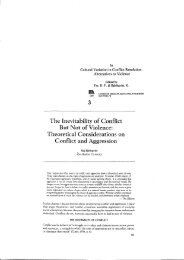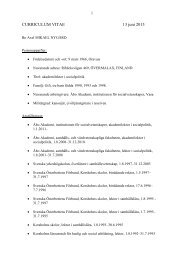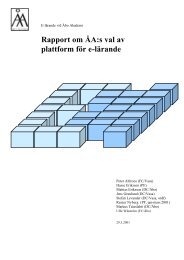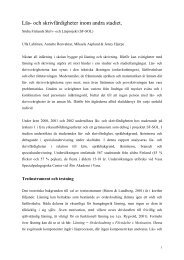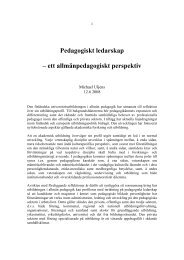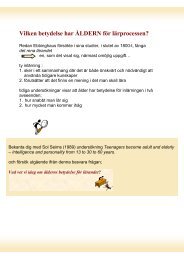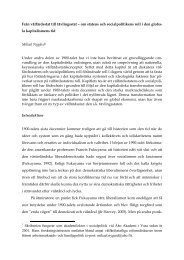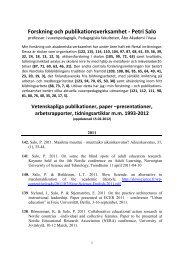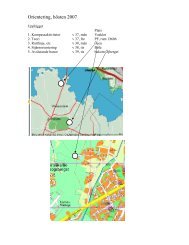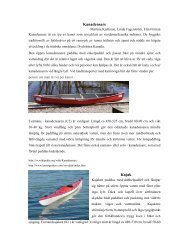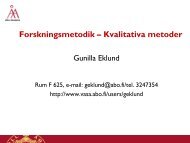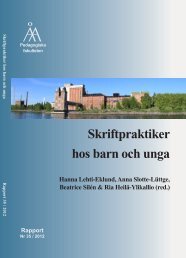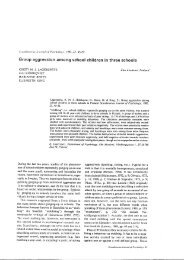Parties, Candidates and Citizens On-Line - Åbo Akademi
Parties, Candidates and Citizens On-Line - Åbo Akademi
Parties, Candidates and Citizens On-Line - Åbo Akademi
You also want an ePaper? Increase the reach of your titles
YUMPU automatically turns print PDFs into web optimized ePapers that Google loves.
• In the third article (Str<strong>and</strong>berg 2007), the focus is turned towards the websites of<br />
the Finnish parties <strong>and</strong> the parties’ opinions concerning the importance <strong>and</strong> use of<br />
their websites. The purpose of the article is to explore potential party patterns in<br />
the parties’ opinions concerning the importance <strong>and</strong> use of their website, <strong>and</strong> the<br />
actual contents of the websites, in light of several party specific characteristics. The<br />
study has an explicit explorative ambition which requires two descriptive exercises<br />
– to analyze the content of the party websites <strong>and</strong> to examine the parties’ ‘inside<br />
view’ of their site. The study has a threefold nature in the overall thesis: one goal is<br />
to empirically assess what the political parties are communicating via their<br />
websites, therefore providing an assessment of whether there appear to be signs of<br />
normalization or equalization evident from the analysis of the party websites (cf.<br />
Margolis et al. 2003; Norris 2003). The article also addresses the question of<br />
conditions potentially influential on on-line communication. Specifically, where the<br />
first article focused on external conditions, this article is concerned with internal,<br />
actor-specific conditions.<br />
• The fourth article (Str<strong>and</strong>berg 2006a) is concerned with the campaign websites of<br />
the Finnish political c<strong>and</strong>idates running for office in the parliamentary election in<br />
2003. The study primarily focuses on theoretically developing <strong>and</strong> empirically<br />
testing the theories of normalization <strong>and</strong> equalization on the c<strong>and</strong>idate level in the<br />
c<strong>and</strong>idate-centred Finnish electoral system <strong>and</strong> campaign culture (Ruostetsaari &<br />
Mattila 2002). The article thus provides an additional level to the assessment of the<br />
on-line electoral competition by political actors. The empirical analysis seeks to<br />
examine predictors of both c<strong>and</strong>idate on-line campaign presence <strong>and</strong> the<br />
sophistication of the c<strong>and</strong>idate sites. The article also analyzes the question of what<br />
the Finnish c<strong>and</strong>idates communicate on-line in times of elections.<br />
• The fifth article 4 (Str<strong>and</strong>berg 2005) provides a further examination of the citizens’<br />
on-line activity. The article focuses on Finnish citizens’ discussions on internet<br />
discussion boards provided by the Finnish parties <strong>and</strong> one independent webportal,<br />
prior to, during <strong>and</strong> after the parliamentary elections in 2003. The empirical<br />
analysis is carried out through content analysis of the messages posted by citizens<br />
on these forums. This article has two characteristics concerning the overall thesis<br />
which merit attention. The article takes a deeper look into the online activity of<br />
Finnish citizens. Also, through examining a form of on-line activity which requires<br />
4 The article was originally published in Swedish in a refereed journal (Str<strong>and</strong>berg 2004). This original<br />
article was then later selected by the Finnish Political Science Association for inclusion in the Encounters<br />
journal. The article version used in this thesis is the English translation of the original article.<br />
26



